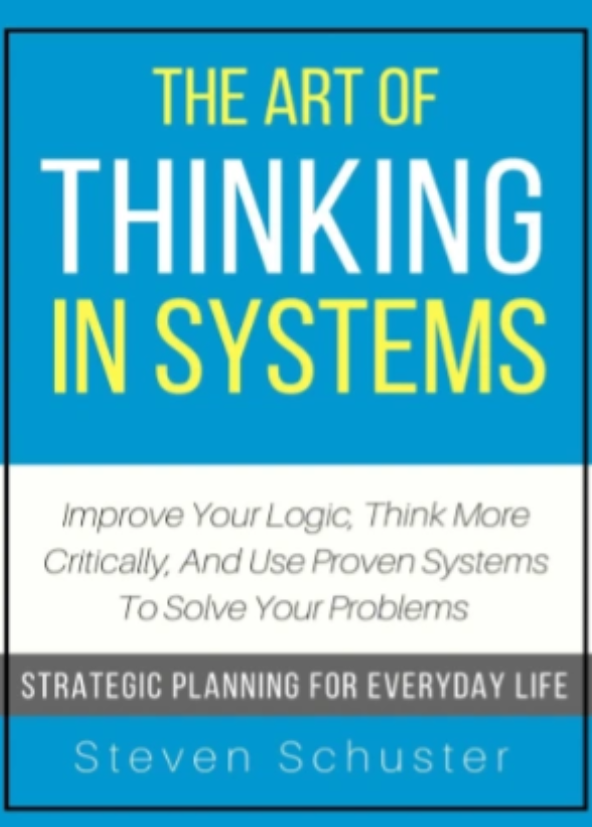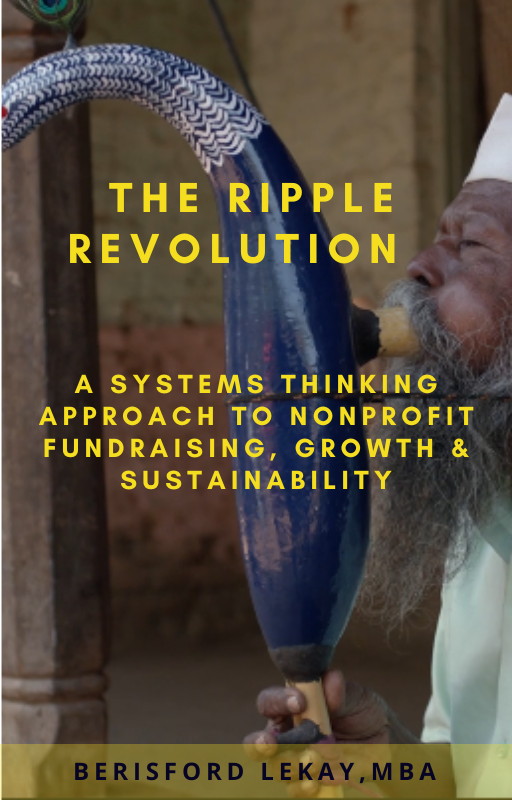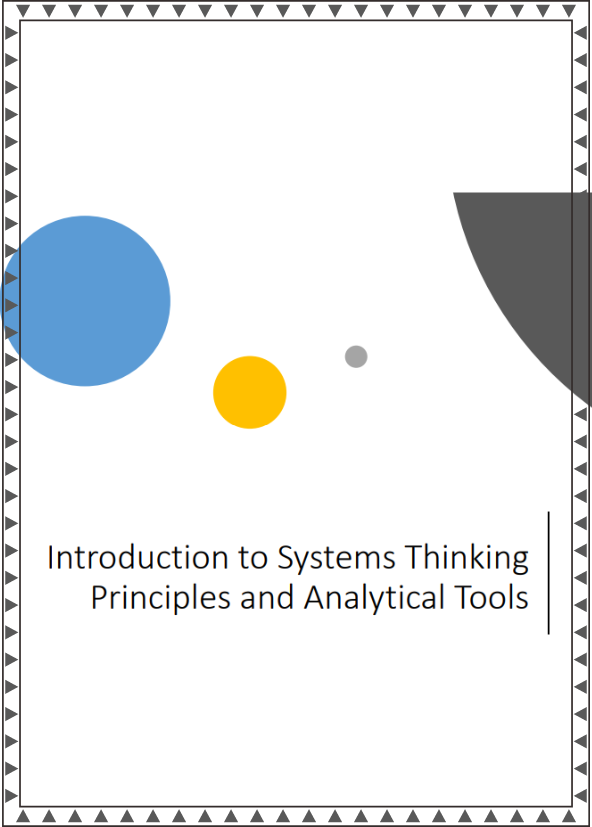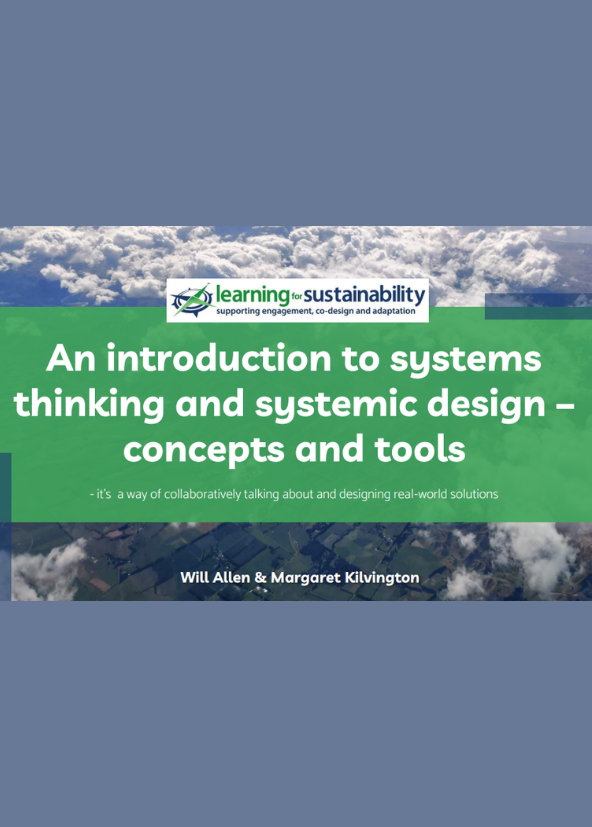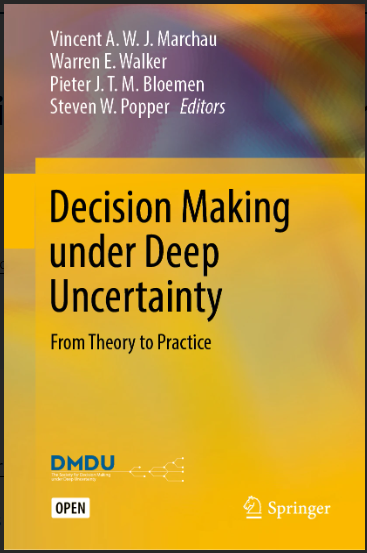E-Books and White Papers
Welcome to our E-Books and White Papers section, where we offer a comprehensive collection of in-depth publications designed to enhance your understanding and application of systems thinking. Our curated e-books and white papers cover a wide range of topics, providing valuable insights, practical strategies, and advanced methodologies to help you navigate and address complex challenges in various sectors.
E-Books
The Art Of Thinking In Systems by Steven Schuster
The Art Of Thinking In Systems by Steven Schuster. Would you like to think more complexly? Understand why certain things happen to you sometimes seemingly by chance, sometimes seemingly by law? Or to become more productive by finding shortcuts where no one else is looking?.
Imagine a world where NPOs are nolonger dependent on band-aids. Thisebook will guide you through a RippleRevolution, a paradigm shift in howyou approach revenue generation andsocial change.
How to Turn Challenging Situations Around by Gary and Lynne Bartlett
This book describes a new approach to challenging business situations.
Introduction to Systems Thinking Principles and Analytical Tools
Systems thinking is a vantage point from which you see a whole, a web of relationships, rather than focusing only on the detail of any particular piece. Events are seen in the larger context of a pattern that is unfolding over time. ‐ isee systems, inc.
Systems Thinking Tools: A User's Guide
Systems thinking is a holistic approach to understanding the world as interconnected systems rather than isolated parts. It's about seeing the big picture and recognizing how elements influence each other. By understanding these relationships, we can make better decisions, solve complex problems, and create more effective solutions.
Decision Making under Deep Uncertainty
From Theory to Practice
Vincent A. W. J. Marchau, Warren E. Walker, Pieter J. T. M. Bloemen, Steven W. Popper
Overview: This work offers a comprehensive examination of approaches and tools for designing plans under deep uncertainty and their application. It identifies barriers and enablers for using various approaches and tools in practice. Additionally, it includes realistic examples and practical guidelines to help readers better understand the concepts._
White Papers
Systems thinking ontology of emergent properties for complex engineering systems
This paper presents a developed ontology of emergent properties characterizing the emergent behavior of complex engineering systems, which is the emergence of greater functionality of the overall system compared to the sum of the functionalities of system components. The ontology is based on the systems thinking approach used in systems architecture, one of the key points to consider in the conceptual design of engineering systems and used to manage the complexity of systems.
Application of Design Thinking Methodology to Organization and Management Studies
Organizational and Management Studies, social science Methodology Nowadays, the use of design thinking methodology in organization and management studies is increasing. In Iran within the field of organization and management, there is still a gap between thinking, formulation, and action, and the application of design thinking has been undeveloped conceptually and methodologically.
Exploring Systems Thinking Typologies and Paradigms
The study aimed to investigate the existence of a spectrum of systems thinking approaches beyond the traditional hard and soft systems thinking dichotomy. It was motivated by the complex challenges faced by the agriculture, food, and natural resources sectors, such as climate change, which demand a nuanced understanding of systems.
Cognitive Biases in Systems Thinking
The study examined cognitive biases in systems thinking by analyzing the use of DSRP elements in written language. It found that systems thinkers, while more efficient, exhibited biases towards certain DSRP elements. The research highlights the need for increased awareness of these biases in systems thinking training and practice to improve the effectiveness of this approach.
Effects of an Experiential Learning Curriculum on Systems-Thinking
The study investigated the impact of experiential learning on residents' development of systems thinking skills within a quality improvement (QI) context. By employing a mixed-methods approach, researchers found that experiential learning significantly enhanced residents' confidence in systems thinking behaviors. Additionally, residents demonstrated a shift in perspective from individual-centered to systems-level problem analysis. These findings support the use of experiential learning as an effective strategy for cultivating systems thinkers in healthcare.
The Systems Thinking Approach to Strategic Management
The paper explores the evolution of systems thinking and strategic management. It highlights a parallel development in both fields, characterized by a shift from prescriptive approaches to a focus on emergence and transformation. The research identifies synergies between systems thinking and strategic management, suggesting opportunities for integration.

